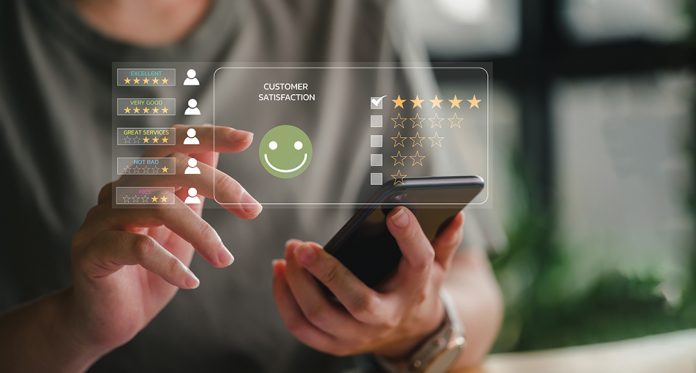By Rachael Merrell
Customer Service Director
at Echo Managed Services
More than ever before, today’s customers have high expectations and water utilities’ customers are no different: their provider should be able to deliver a seamless service, with little or no inconvenience to them or their day-to-day activities
Echo Managed Services, the experts behind Aptumo, provide specialist customer service and billing solutions to the water industry. Decades of sector-specific experience and direct engagement with customers confirms that their needs and, more importantly their expectations, are changing.
One of the top five recommendations for businesses in all sectors, according to the latest UKCSI report from the Institute of Customer Service, is to develop strategies to tackle or prevent problems before they affect the customer. In the water sector specifically, implementing smart tech could be the best way to achieve this goal.
A tech-enabled system
From infrastructure to customer service systems in contact centres, implementing smart tech should be a collaborative, one team effort, with the objective being to detect any issues before they can impact the customer experience.
A full end-to-end review of existing customer journeys and touchpoints will inform the introduction of suitable smart technology that will give the provider full visibility of the water system, enabling them to better understand what their customers truly want and need.
Every partner involved in the review, design, and implementation process will share their knowledge and skills to improve the overall customer experience. It’s paramount in any smart tech project that this remains at the heart of the collaboration, and customer benefit is the objective.
Introducing smart tech that enables a water company to detect issues which may cause problems helps to reduce customer complaints and ensure that customers don’t get a surprise either with their water supply or bill. Embracing smart tech enables all elements of the water supply journey to work together to benefit the customer.
Water companies should be able to identify any potential issues themselves; relying on customers to report problems means reputational damage could already have been done. Introducing smart tech gives providers the tools they need to pre-empt issues with water supply or billing to minimise any impact on the customer.
Detecting problems
By constantly monitoring systems to detect any changes in performance, water companies can rectify issues before they become a problem for consumers. There’s no one-size-fits-all approach but, following a full review of existing customer experience, first steps should include introducing tech that gathers performance data such as changes in water pressure, for example. By noticing faults promptly, teams can be notified to carry out repairs before the customer becomes aware.
If an issue is likely to take a little longer to fix or there may be an impact on water supply, service teams can contact customers to prepare them for any disruption. They can also direct customers to any support they may need if their water supply is disturbed.
Improving the billing process
Introducing smart tech can also improve the customer experience by helping to ensure that a higher than usual bill doesn’t come as a surprise. Having a system that monitors supply, considers any change in household circumstances, and continually monitors usage, means customer service teams are well-equipped to have conversations with customers about billing and affordability.
Ideally, any changes to billing should be due to something the customer is aware of; it should never be because of a system fault or increased consumption that was beyond the customer’s control. Having a proactive system that identifies leaks quickly, before they develop into serious incidents, should help to reduce any impact on customer bills.
Being able to constantly monitor usage gives water utilities intel that allows them to contact a customer if, for example, there’s a noticeable change in household consumption. Customers don’t always realise the impact that changes to the number of people in the household or introducing new water dependent appliances can have on their water bill. If the customer service team identifies an unusually high bill before it’s sent to the customer, they can make contact in advance to ensure that the customer understands why their bill has increased and provide any support they may need to help pay it.
Impact on customer satisfaction
Proactive systems are key to maintaining and further improving satisfaction ratings among water customers. In the July UKCSI report, the average customer satisfaction for water companies was up 1.5 points since July 2021, with satisfaction settling at a respectable 76.1 points. The research showed that 42.7% of respondents said any complaints were dealt with immediately, and 38% said that the resolution time was quicker than expected.
Whilst this data largely reflects very well on the water sector, there’s clearly still room for improvement which can be achieved by taking steps to both reduce the number of complaints and manage them quickly. Proactive customer service that works with the right tech and involves real collaboration between the partners involved in managing the customer experience means that satisfaction could be greatly improved. It removes the frustration of unexpected issues with supply or bills and allows people time to seek out support if they face any financial or practical challenges. If water providers are to keep up with ever changing consumer demands, implementing smart tech really is the future.



